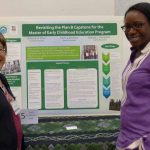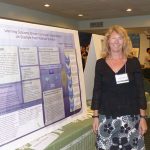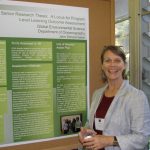Capstone Experience to Assess Knowledge and Skills
This workshop shows how the Geology & Geophysics capstone experience prepares majors to be better scientists, and it …

This workshop shows how the Geology & Geophysics capstone experience prepares majors to be better scientists, and it …

Animation is one of the three degree tracks in ACM Department. It has 2 full-time faculty positions and …

Poster will outline new learning objectives for the Geography department as a result of a faculty discussion of …

The Master of Early Childhood Education Program is a 2-1/2 year, 30 credit hybrid program is primarily delivered …

The Communication Department’s mission is to meet the challenges and opportunities of communication in the emerging technological, multicultural, …

The Political Science faculty modified existing departmental, undergraduate student learning outcomes (SLOs), which informed assessment development and curricular …

The Global Environmental Science (GES) program offers a B.S. degree through the Department of Oceanography in the School …
American Studies -The UHM American Studies Department is one of the oldest and largest American Studies departments in …
The faculty of Hawaiian Studies (HWST) developed a blended assessment plan for our undergraduate program over the past …
The Department of History has been engaged in assessment work of our undergraduate major, identifying how we can …
The first half of this document defines and discusses the capstone experience. The latter half covers using capstones for …